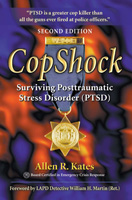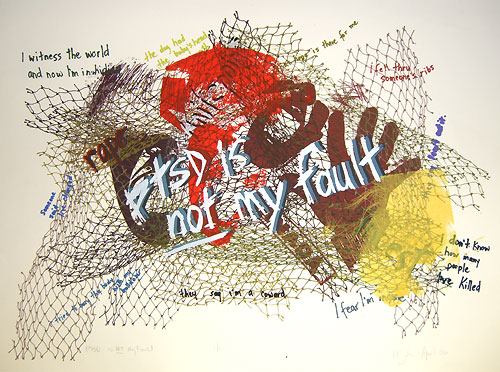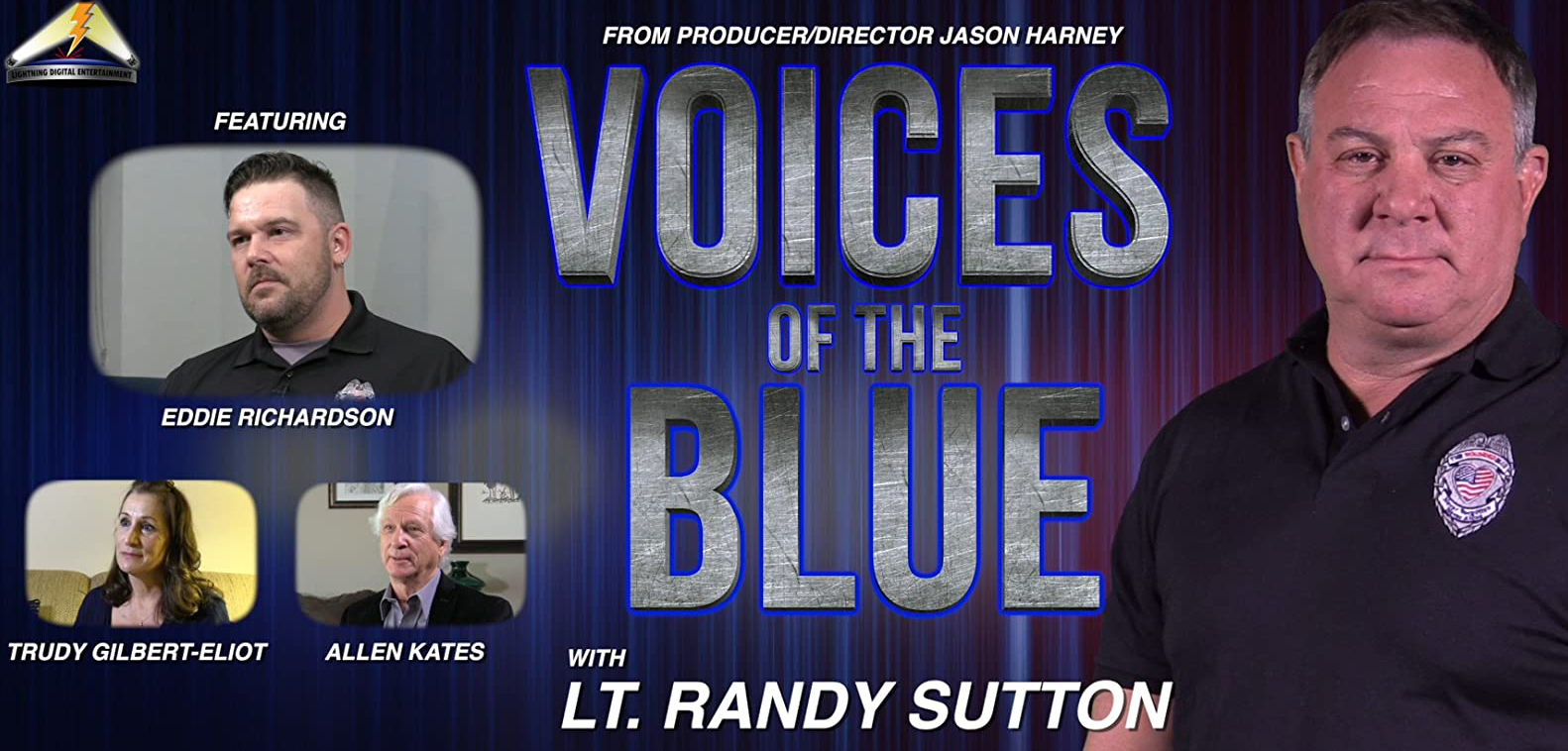
CopShock: Second Edition
Surviving Posttraumatic Stress Disorder (PTSD)
by Allen R. Kates, MFAW, BCECR
"PTSD is a greater cop killer than all the guns ever fired at police officers."
-Lt. James F. Devine, (Ret.), CSW, CASAC, CEAP

Common PTSD Symptoms
- Nightmares
- Flashbacks
- Anger/Rage
- Self-Destructive Tendencies
- Concentration Problems
- Emotional Detachment
- Blaming Yourself or Others
- Avoidance of People and Places
As many as one in three cops or firefighters may suffer from PTSD, a condition that could lead to depression, suicidal thoughts, addictions, eating disorders as well as job and family conflict. More than one-third of warfighters returning from overseas have PTSD symptoms.
What is PTSD?
Disorder. Posttraumatic Stress Disorder is called a disorder because it disrupts the normal functioning of our lives. It disrupts sleep, relationships, work and physical health. In the DSM-IV, PTSD was classified as an anxiety disorder because some of its chief attributes are anxiety, fear and avoidance of feelings, people and places that we feel may cause us pain. In the DSM-5, published in May 2013, PTSD was reclassified as a trauma and stressor-related disorder.
Exposure/Stressor. According to the the American Psychiatric Association (APA) in its diagnostic book, referred to as the DSM-5, the trigger to PTSD begins as exposure to actual or threatened death, serious injury or sexual violence.
If you experience only 1 of the following, you would meet the criteria for PTSD stressor:
- Direct exposure
- Witnessing, in person
- Exposed indirectly, by learning that a close relative or close friend was exposed to trauma. If the event involved actual or threatened death, it must have been violent or accidental.
- Repeated or extreme indirect exposure to aversive details of the event, usually in the course of professional duties such as first responders, collecting body parts, child abuse and so on. Does not include indirect non-professional exposure through the media
The DSM-5 adds that the event causes significant distress or impairment in social interactions and work.
Injury? The military asked the APA to change the name of Posttraumatic Stress Disorder to Posttraumatic Stress Injury, as they feel that members of the military will avoid any classification suggesting a "disorder" or implication of madness, and, consequently, not seek help.
The APA declined to make the change as they do not believe the word "injury" completely captures the meaning of PTSD. In addition, PTSD is not madness or insanity. It is a normal reaction to trying to cope with extreme stress. In the future, we will be hearing more about whether PTSD is or is not an injury.
Can cops, firefighters and warfighters get PTSD?
At horrific events such as bloody car accidents, shootings or scenes of mass casualties, police officers, firefighters or warfighters usually appear calm and in control. That is because they have been trained "to dissociate from their emotions or suppress their emotions in order to be able to endure the scene."
Unfortunately, sometimes their training helps set them up for developing PTSD if they suppress their emotions after a traumatic incident and do not get proper support. "They get stuck and life for them is changed."
If you're a cop, firefighter or combat veteran, is PTSD inevitable?
Nevertheless, PTSD is not an inevitable consequence of trauma for cops, firefighters, warfighters or anybody else. Nobody develops it automatically. Most people do not acquire it at all. As a matter of fact, many police officers, firefighters and warfighters thrive as a result of the traumatic experience and learn from it. For those who develop PTSD, however, they often don't know they have the condition because it can sometimes take months or years for clear-cut symptoms to show up.
An accumulation of several traumatic or violent events may lead to PTSD. But one major traumatic event is sufficient to cause the disorder in some people. Police, like combat veterans, are especially prone to developing it because they see so much despair, misery and harm done to others. Sometimes the harm is done to them.
What are PTSD's symptoms?
What distinguishes PTSD from other stress syndromes and makes it particularly hard to manage without counseling are these clusters of symptoms: (Updated using the DSM-5)
*Please note: the
following symptoms are described in the DSM's May 2013 edition, known as the DSM-5, which is the
diagnostic book published by the American Psychiatric Association. If
you were diagnosed with PTSD under the previous edition, the DSM-IV,
your diagnosis does not change, even though the criteria were slightly
different.
(DSM-5)
Reliving the trauma, intrusion (1 required)
- Recurrent, involuntary and intrusive memories of the traumatic event
- Traumatic nightmares
- Brief flashbacks to complete loss of consciousness, known as dissociative reactions
- Intense or prolonged distress after exposure to traumatic reminders
- Causes great psychological and even physical distress
Avoiding reminders of the trauma (1 required)
- Avoiding trauma-related thoughts or feelings
- Avoiding reminders such as people, places, conversations, activities, objects, or situations
Negative thoughts and mood or feelings (2 required)
- Inability to remember key aspects of the trauma, dissociative amnesia
- Persistent negative beliefs and expectations about oneself or the world
- Persistent distorted blame of self or others for causing the traumatic event or aftermath
- Trauma related emotions like fear, horror, anger, guilt or shame
- Diminished interest in activities you previously enjoyed
- Feeling alienated from others, detached, estranged
- Persistent inability to experience positive emotions
Experiencing arousal, agitation as a result of the trauma (2 required)
- Problems in concentrating
- Falling or staying asleep
- Irritable or aggressive behavior, anger, rage
- Self-destructive or reckless behavior
- Being easily startled or exaggerated startle response
- Hypervigilance, overreacting to situations as a consequence of being super-alert or hypervigilant about people or places.
The book CopShock helps you prevent PTSD or manage its symptoms so police officers, firefighters and warfighters are not crippled by the syndrome's effects.
Please click here
INTERNATIONAL SHIPPING CANCELED DUE TO TARIFFS
Please click here to order
To contact author and speaker Allen R. Kates, please click here
Be sure to watch this new Police PTSD video series:
Voices of the Blue, 6-part series by Lt. Randy Sutton
Producer/Director Jason Harney
Allen Kates is featured in 4 episodes of this new Police PTSD video series:
Hosted by the CEO and Founder of The Wounded Blue Organization,
Lieutenant Randy Sutton, "Voices of the Blue" features the true stories
of our Law Enforcement Officers and their experiences after becoming
physically and mentally injured in the line of duty. As told by the Cops
themselves, the series explores the consequences of trauma incurred
when the aftermath of a critical incident leaves these heroes to cope
with their injuries alone, often abandoned by their agencies and sent in
a downward spiral where they lose everything that matters most.
Voices of the Blue
Copyright © 2008-2025 by Allen R. Kates